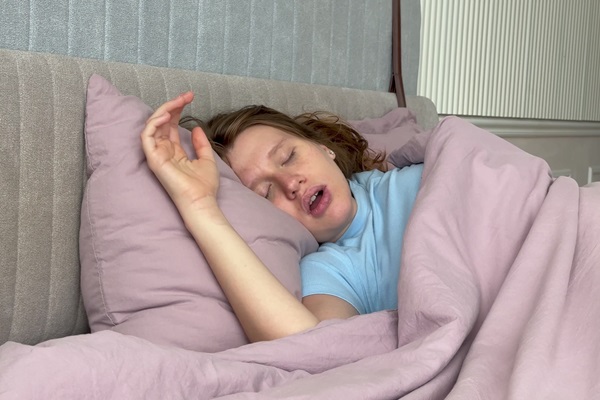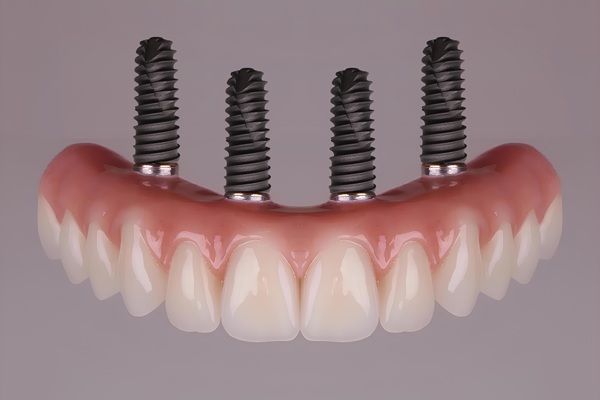How a General Dentist Can Help Treat Sleep Apnea

Sleep apnea is a serious sleep disorder that affects millions of individuals worldwide. It occurs when breathing repeatedly stops and starts during sleep, disrupting rest and potentially causing long-term health consequences. Many people are unaware that a general dentist plays a key role in diagnosing and managing sleep apnea, particularly with non-invasive treatment solutions. By recognizing the symptoms and offering effective therapies, dentists can significantly improve a patient’s sleep quality and overall health.
What is sleep apnea?
Sleep apnea has two main forms: obstructive sleep apnea (OSA) and central sleep apnea. The most common form, OSA, occurs when the muscles in the throat relax excessively during sleep, causing the airway to collapse and blocking normal breathing. These pauses in breathing can last several seconds and may occur dozens or even hundreds of times per night.
Patients with sleep apnea often experience symptoms such as:
- Daytime fatigue
- Difficulty concentrating
- Episodes of choking or gasping during sleep
- Loud snoring
- Morning headaches
If left untreated, sleep apnea can lead to serious complications, including high blood pressure, heart disease, stroke, and diabetes. It is crucial for individuals who experience these symptoms to seek diagnosis and appropriate treatment.
Sleep apnea treatment by a general dentist
General dentists are increasingly involved in managing sleep apnea, particularly obstructive sleep apnea. Dentists can identify early signs of the disorder during routine dental examinations. By assessing oral structures such as the tongue, throat, and jaw, dentists can recognize risk factors that contribute to airway obstruction.
After determining whether the patient has sleep apnea, dentists often collaborate with sleep physicians to confirm the diagnosis through a sleep study. Following the diagnosis, general dentists can provide customized oral appliances as a non-surgical, non-invasive treatment option.
Oral appliance therapy for sleep apnea
Oral appliance therapy is one of the most effective dental treatments for mild to moderate obstructive sleep apnea. This treatment involves wearing a custom-made oral device during sleep to keep the airway open. The appliance works by repositioning the lower jaw or tongue to prevent the collapse of soft tissues in the throat.
Benefits of oral appliance therapy
- Non-Invasive Treatment: Unlike continuous positive airway pressure (CPAP) machines or surgery, oral appliances offer a comfortable, non-invasive solution for managing sleep apnea.
- Improved Comfort: Custom-designed oral devices are lightweight, easy to wear, and do not require masks or tubing, making them ideal for patients who struggle with CPAP therapy.
- Convenient and Portable: Oral appliances are compact and portable, providing a convenient solution for travel and everyday use.
- Enhanced Sleep Quality: These devices promote uninterrupted sleep and reduce daytime fatigue by preventing airway obstruction, improving overall health and well-being.
How the treatment process works
When a general dentist is involved in sleep apnea treatment, the process typically includes the following steps:
1. Screening and Evaluation
During a dental examination, the dentist screens for signs of sleep apnea, such as a narrow airway, large tongue, or worn teeth caused by nighttime grinding. Patients exhibiting symptoms are referred to a sleep specialist for a definitive diagnosis.
2. Treatment Planning
Once a diagnosis of obstructive sleep apnea is confirmed, the dentist works with the patient to determine whether oral appliance therapy is an appropriate solution. For mild to moderate cases, an oral appliance is often recommended as a primary treatment.
3. Custom Appliance Fabrication
The dentist takes digital impressions or physical molds of the patient’s teeth to create a custom-fit oral appliance. Precision is essential to ensure the device is both comfortable and effective in maintaining an open airway.
4. Fitting and Adjustment
Once the oral appliance is ready, the dentist ensures it fits properly and makes any necessary adjustments for optimal performance. Patients are educated on wearing, cleaning, and maintaining the device for long-term use.
5. Follow-Up and Monitoring
Regular follow-up visits are essential to assess the effectiveness of the treatment and make further adjustments if needed. The dentist also monitors the patient’s oral health to prevent potential issues, such as jaw discomfort or changes in bite alignment.
Get treatment for sleep apnea today
Sleep apnea is a serious condition that impacts sleep quality and overall health. General dentists are critical in identifying and treating obstructive sleep apnea through customized oral appliance therapy. Dentists help patients experience restful sleep, improved health, and enhanced well-being by offering non-invasive, comfortable, and effective solutions. For individuals seeking an alternative to traditional CPAP therapy, treatment provided by a general dentist offers a practical and life-changing solution. For more information, schedule a consultation visit today at South Florida Dental Arts.
Request an appointment here: https://www.southfloridadentalarts.com or call South Florida Dental Arts at (305) 230-4041 for an appointment in our Miami office.
Check out what others are saying about our dental services on Yelp: Do I Have Sleep Apnea in Miami, FL.
Recent Posts
Dental sleep medicine treatment focuses on treating sleep apnea and other related conditions. More dentists are choosing to practice in this line of work because there are actually a lot of good dental sleep apnea treatments available to patients. Modern-day dentistry has evolved quite a bit, which has allowed for the evaluation of all kinds…
Are you looking for CPAP alternatives to treat your sleep apnea? Obstructive sleep apnea is a common condition that impacts millions of individuals all across the globe. Due to this condition, the patient’s airway closes while they are asleep. This can lead to symptoms like difficulty staying asleep throughout the night, snoring, morning headaches, and…
Oral appliance therapy is ideal for people with mild to moderate obstructive sleep apnea (OSA). This dental device keeps the airway open during slumber at night. It prevents sudden and short breathing cessation that lasts for 1-2 seconds or longer. Severe cases can cause serious health issues such as hypertension, heart attack, and stroke. Keep…
Seeking treatment for sleep apnea is important for your general health. Your general dentist can detect signs of this sleep disorder during a comprehensive dental exam. The sleep doctor can work with your dentist to correct the problem. Here are the details about when to see a dentist for sleep apnea.This sleep disorder makes a…


